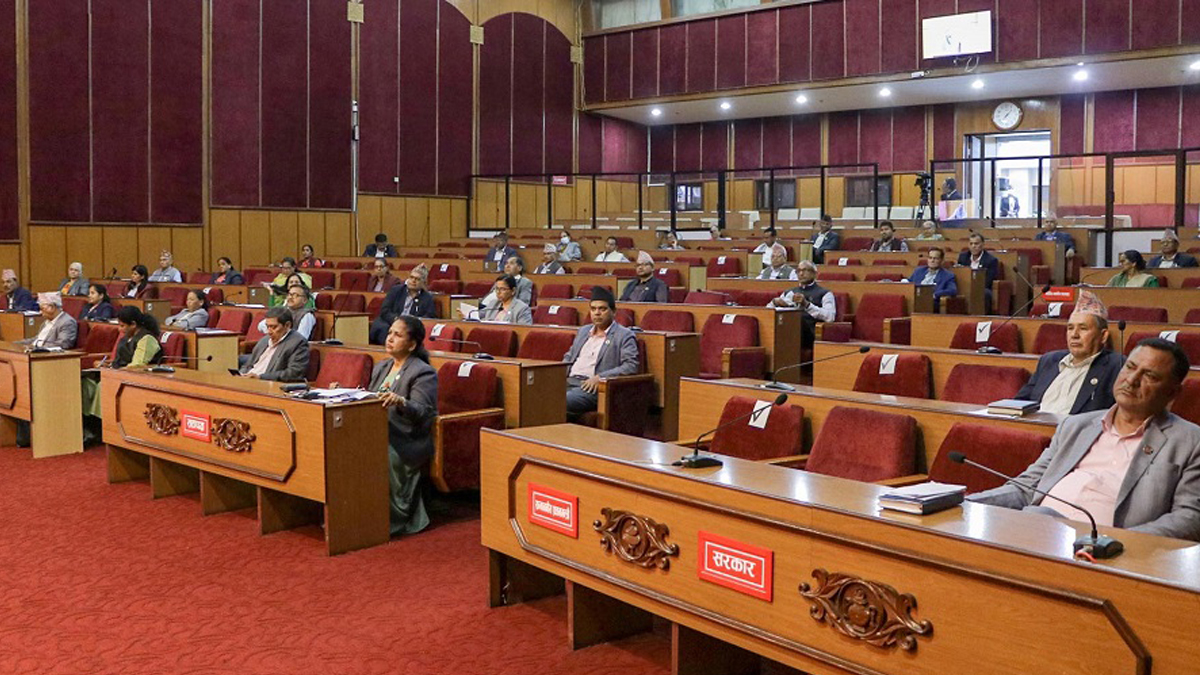
Lawmakers Address Transitional Justice, Constitutional Amendments, and National Issues in Assembly Meeting
In today’s meeting of the National Assembly (NA), lawmakers welcomed the recent political consensus on the bill related to the Transitional Justice Act. The session also saw members drawing the government’s attention to pressing political developments and challenges at both national and local levels.
Sonam Gyaljen Sherpa emphasized the need for the government to provide effective insurance coverage for workers in high-risk electrical sectors. He also called for better orientation on safety devices and improvements in communication infrastructure. Sherpa underscored the necessity of a national consensus on critical issues, including potential amendments to the Constitution.
Jhakku Prasad Subedi expressed concerns over the term “violent conflict” used to describe the “people’s war,” asserting that the movement, aimed at establishing the rights of the people, has been misrepresented. He also raised concerns about the Nepali Congress’s perceived intentions to amend the Constitution, questioning whether the party, known for its democratic values, aims to introduce a two-party system. Subedi insisted that any constitutional amendment should focus on establishing an elected executive head and a fully democratic electoral system.
Narayan Datta Bhatta praised the House of Representatives for passing the Truth and Reconciliation Commission (TRC) Bill on Wednesday. He advocated for constitutional amendments that would further empower citizens across all communities and regions.
Gomadevi Timilsina acknowledged that while the Constitution is subject to amendment over time, any changes must not undermine the rights of citizens that were hard-earned through prolonged struggles. She also voiced concerns over the closure of state-owned industries and public enterprises due to political reasons.
Bishnu Kumari Sapkota called for policies and programs that would create job opportunities for youth within the country and help break the cycle of poverty. Rajendra Laxmi Gaire highlighted the persistent challenges women face in achieving equality and inclusion, despite constitutional guarantees.
Shrikrishna Prasad Adhikari lamented the ongoing exclusion of persons with disabilities from state facilities, while Tulasa Kumari Dahal criticized the government’s decision to require National ID cards for receiving old-age allowances, stating that it has caused inconvenience for many beneficiaries.
The session reflected a broad spectrum of concerns, from transitional justice and constitutional amendments to social inclusion and economic development, signaling the NA’s ongoing engagement with key national issues.













Comments